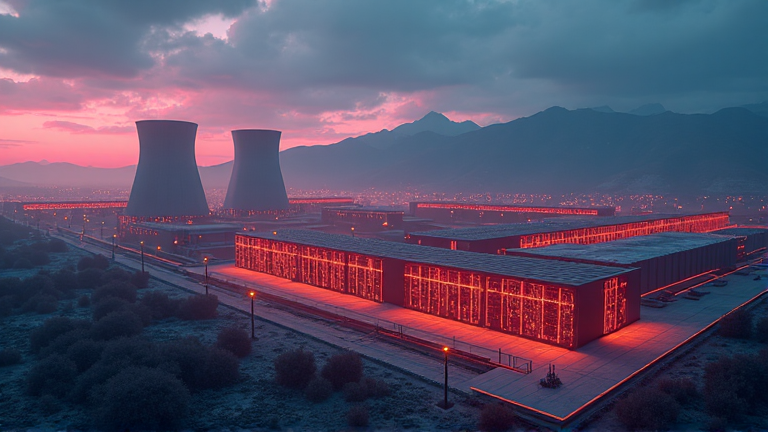
Microsoft Embraces Nuclear Energy to Fuel Data Centers and AI Innovation
Microsoft is making a bold move toward next-generation nuclear reactors to power its data centers and support its ambitious artificial intelligence (AI) initiatives. This shift underscores the tech giant's commitment to finding sustainable energy solutions to meet the growing demands of AI development while aligning with its climate goals.
In recent months, Microsoft has signaled a strong interest in advanced nuclear technology as a clean energy source. Nuclear power offers a promising solution to the dual challenge of reducing carbon emissions and addressing the energy-intensive nature of AI and cloud computing. However, this approach is not without controversy, as concerns about radioactive waste management and uranium supply chains persist.
Microsoft's focus on small modular reactors (SMRs) highlights its dedication to innovation in clean energy. SMRs are smaller, more cost-effective, and quicker to deploy than traditional nuclear reactors. Despite their potential, challenges remain, including the reliance on highly enriched uranium fuel — a market currently dominated by Russia — and the unresolved issue of long-term nuclear waste storage.
This push for nuclear energy is part of a broader trend among tech companies seeking reliable, clean energy sources for their data centers. As AI and cloud computing drive unprecedented energy consumption, the tech industry faces mounting pressure to decarbonize. Microsoft is leading the charge with partnerships in nuclear energy and investments in experimental technologies like fusion power, which could provide limitless clean energy in the future.
Microsoft's Nuclear Partnerships and Innovations
Microsoft is actively collaborating with nuclear energy providers to secure clean power for its operations. In a landmark agreement, the company partnered with Constellation Energy to restart Unit 1 of Pennsylvania’s Three Mile Island nuclear plant. This facility, infamous for the 1979 partial meltdown of its Unit 2 reactor, will now supply 800 megawatts of clean energy to Microsoft’s data centers. This partnership marks a significant step toward Microsoft’s goal of becoming carbon negative by 2030.
"This agreement is a major milestone in Microsoft’s efforts to help decarbonize the grid in support of our commitment to become carbon negative," said Bobby Hollis, Microsoft's vice president of energy.
The surge in AI development has dramatically increased energy demands. Data centers, which power AI applications, require vast amounts of electricity around the clock. According to a Department of Energy report, data center energy consumption in the U.S. jumped 18 percent between 2018 and 2023 and is expected to grow by 13 to 27 percent by 2028. This has forced tech companies to explore innovative energy solutions, from nuclear fission to fusion and beyond.
Emerging Technologies and Future Prospects
Microsoft is also investing in cutting-edge technologies like fusion power, which, while still experimental, holds the promise of limitless clean energy. Additionally, the company is exploring liquid cooling technology to prevent data centers from overheating, a critical issue as energy demands rise.
In January, the Nuclear Regulatory Commission certified its first SMR design, paving the way for utilities to adopt the technology. This development aligns with Microsoft’s vision of leveraging SMRs to meet its energy needs sustainably.
The Bigger Picture: Tech Companies and Nuclear Energy
Microsoft’s nuclear ambitions reflect a broader trend among tech companies racing to secure reliable, clean energy sources. As AI and cloud computing continue to drive energy consumption, the tech industry is under increasing pressure to decarbonize. Microsoft’s efforts, including partnerships with nuclear energy providers and investments in experimental technologies, position the company as a leader in sustainable innovation.
Related Stories:
- CFS to build world's first grid-scale nuclear fusion power plant in Virginia.
- AI data centers are straining the grid – and your home appliances are paying the price.
- Oh, the irony: Natural gas is the real MVP for AI and data centers – green energy can't hack it.
- ExxonMobil, Chevron to build natural gas-fueled power plants to power Big Tech's AI data centers.
- OpenAI proposing construction of 5GW data centers all over the United States.
Sources include: - TheVerge.com - GeekWire.com - NBCNews.com - Brighteon.com
Note: This publication was rewritten using AI. The content was based on the original source linked above.